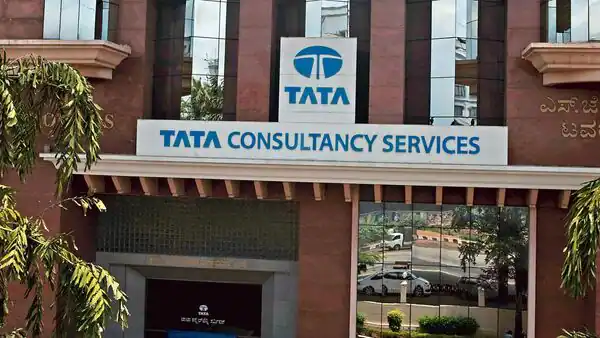



Tata Consultancy Services Limited (TCS) is an Indian Multinational Information Technology (IT) services and Consulting Company headquartered in Mumbai. It is a part of the Tata Group and operates in 150 locations across 46 countries. In March 2024, it was reported that TCS had more than 6,01,546 employees worldwide. TCS is the second-largest Indian Company by Market Capitalization, the most valuable IT service brands worldwide, and the top Big Brand Indian company. Tata Consultancy Services’ history started in 1968 when it was founded as “Tata Computer Systems” by a subsidiary of Tata Sons Limited. As a subsidiary of the prestigious Tata Group, TCS has grown to operate in 46 countries across the globe.
In its early days, TCS secured contracts for services like punching card services for TISCO, an inter-branch reconciliation system for the Central Bank of India, and bureau services for UTI. Demonstrating its technical prowess, TCS developed SEMCOM, an electronic depository and trading system for a Swiss company, in 1975. The company’s first software R&D Centre, known as Tata Research Development and Design Centre (TRDDC), was established in Pune in 1980. TCS also set up an offshore development centre in 1981.
In 1993, TCS partnered with a Canadian software factory, eventually leading to its acquisition. Towards the end of 1999, TCS introduced the Decision Support System (DSS) under the leadership of Corporate Vice President Subbu Iyer. During the last decade, TCS demonstrated exceptional performance. The organisation went public on August 25, 2004, and launched on Dalal Street at a 27 per cent premium to its issue price. Over the next ten years, it delivered a compounded annual return of 27 per cent. TCS’s market value increased from Rs. 47,232 crores to Rs. 4.94 lakh crore, making it India’s largest listed company.
TCS’s remarkable business model led to it achieving annual revenues of USD 10 billion for the first time in 2011-2012. In 2013, the Indian Department of Posts awarded TCS a significant six-year contract worth over 1100 crores INR.
During the 2013-14 fiscal year, continental Europe was TCS’s fastest-growing market, accounting for 52% of overall growth. Latin America was close behind, accounting for 35% of the growth. However, the Americas now account for the majority of the company’s revenue, which is expected to reach US$10.8 billion in 2020. Because TCS’s income is derived in many currencies, its worldwide presence allows it to offset earnings risks induced by currency changes. In January 2017, TCS formed a partnership with Aurus, a payments technology company, to deliver payment solutions for retailers.
In October 2020, Tata Consultancy Services achieved a significant milestone by surpassing Accenture as the world’s most valuable IT business. TCS garnered a market valuation of US$144.73 billion or Rs. 10.6 trillion. This achievement was a testament to the company’s remarkable growth and success. Just a decade earlier, TCS shares could be acquired for Rs. 375, but in December 2020, they reached an all-time high of Rs. 2,898. This represented a staggering increase of 603 per cent in stock value over the previous decade.
TCS had built a varied workforce of 453,540 individuals from 147 nationalities across 46 countries by the beginning of 2021. In December 2020, the corporation will double its footprint in Austin, Texas, by establishing a new facility. TCS intended to invest more than $100 million in Austin over the next seven years, with the objective of hiring 10,000 new Americans. TCS has focused on unifying its operations in Eastern Europe, the Middle East, Africa, and Latin America into a single strategic business unit. This strategic decision was intended to increase its footprint in emerging markets and diversify its income streams.
TCS has been a consistent compounder over the year. It had one bad year (2008) when the entire world was going through the financial crisis. Almost all stocks crashed by 50% or more, TCS was no different.
Good companies recover after a bear market. Poorer companies are slower to recover. And fraud companies are usually buried forever.
TCS showed quick recovery. In 2009, the stock price jumped by more than 200% – which also happened to be the best ever year for the stock price of the company.
Another interesting point: The TCS share price fell below its IPO price in October 2008. This was an excellent entry opportunity for those who were willing to take a chance when the bear market was at its peak and there was pessimism all around.
The market does give excellent entry opportunity during bear markets, but it’s difficult to grab them due to pessimism and fear of bigger falls.
2009 onwards, TCS has been a steady performer. 2011, 2015 and 2016 were dull years, but apart from those, the TCS share price has been consistently rising.